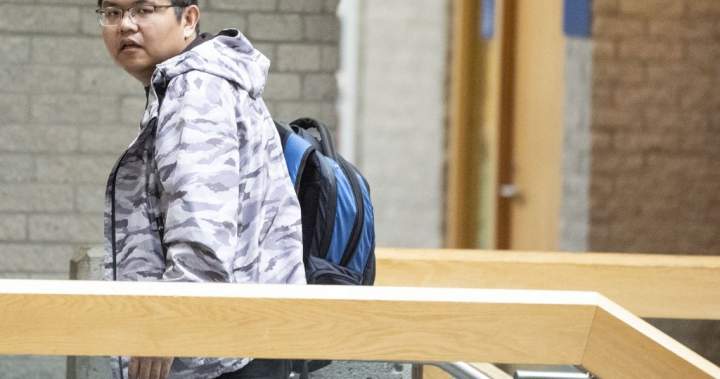Physical Address
304 North Cardinal St.
Dorchester Center, MA 02124
Physical Address
304 North Cardinal St.
Dorchester Center, MA 02124

A former Quebec power company researcher accused of economic espionage to benefit China has launched an internal investigation following the publication of an academic paper in March 2022 that included his name, a witness said at his trial on Wednesday.
Patrick Phan, head of strategic projects and partnerships at the Hydro-Québec research institute, testified that a colleague showed him an unauthorized post that included Yuesheng Wang’s name and asked if the company’s intellectual property committee was aware of it.
“This publication had not gone through the committee or received approval from the committee,” Phan said Wednesday.
The discovery triggered an internal investigation and would result in Wang, 38, going on trial this year on several charges, including becoming the first person to be charged with economic espionage under Canada’s Information Security Act.
Wang was fired in 2022 from the Center of Excellence in Electrification of Transportation and Energy Storage, known as CETEES, a Hydro-Québec research institute located in Varennes, Que., that looks at advanced battery technologies and energy storage systems.
Wang is also charged under the Penal Code with fraudulently using a computer, breach of trust, committing preparatory acts on behalf of a foreign entity and informing that entity – the People’s Republic of China – of his intentions.
Wang, a Chinese national who lives in Candiac, Que., south of Montreal, has pleaded not guilty.
The Crown alleges Wang applied to Chinese universities under the Thousand Talents program, a recruitment tool used by the Chinese government to lure foreign-trained scientists back to work in China as part of its technology acquisition policy.
Wang allegedly pledged to help Chinese entities commercialize battery technologies related to confidential research domains at Hydro-Québec.

Get the day’s top news, political, economic and current affairs headlines delivered to your inbox once a day.
Phan told the trial that further searches turned up other unauthorized posts under Wang’s name. The witness noted that some publications listed only Wang’s name, while others included his associations with Hydro-Québec and other researchers employed by the research center.
The matter quickly moved to corporate security at the utility and eventually ended up in the hands of the RCMP in August 2022 and the federal Crown, which laid charges that November. Phan said he did not personally ask Wang for an explanation about the problematic post.
The court also heard Wednesday that Wang did not make secret his collaborations with Chinese institutions, as he provided a list when he sought a reclassification of his work in 2019. That list of publications and patents prompted a manager to warn him that he could not publish with outside institutions without informing Hydro-Québec.
Phan said Wang was not aware of any problems, but was committed to making sure it doesn’t happen again.
The research institute is one of two that the company operates. The Varennes facility is dedicated to so-called open innovation, which allows publication. A second facility located in Shawinigan, Que., is dedicated to closed innovation, where developments are too sensitive to be published.
“There are projects considered sensitive in both (centers), given that the intellectual property is being developed for commercialization in both locations,” Phan said. Phan noted that since publication can lead to problems preventing future patents, all publications must go through a two-step approval process.
Earlier Wednesday, Karim Zaghib, a retired Hydro-Québec official who founded CETEES, described how Wang came to Quebec. Wang said he met Zaghib in March 2015 while giving a lecture in China. Although Zaghib did not remember the encounter, Wang ended up in Quebec a year later.
Wang’s interest in sodium ion batteries caught Zaghib’s attention as it was considered a necessary and long-term strategic focus in the facility.
In terms of security, Zaghib said it was prohibited to use personal email addresses to obtain sensitive information, especially publications. But when Wang was first hired in 2016, he noted that the facility was in a transition phase and that the rule was not strictly enforced for non-sensitive communications.
Zaghib also noted that the use of USB keys had been banned for security reasons around 2018 or 2019. Among the items Wang returned after his dismissal was a key that included 518 documents that had been deleted and two retained by the RCMP as part of the Crown’s case.
Although Wang had great academic potential because of his background in theory and fundamental research, Zaghib said the defendant had not talked about applying for another job. Zaghib, now a professor of chemical and materials engineering at Concordia University, said Wang was an excellent researcher.
The case is being heard by Quebec court judge Jean-Philippe Marcoux at the Longueuil courthouse.
This report from The Canadian Press was first published on October 15, 2025.
© 2025 The Canadian Press